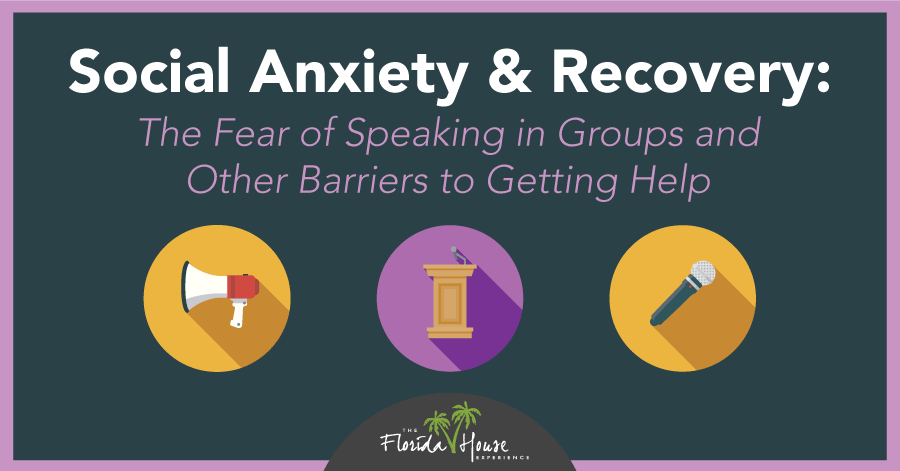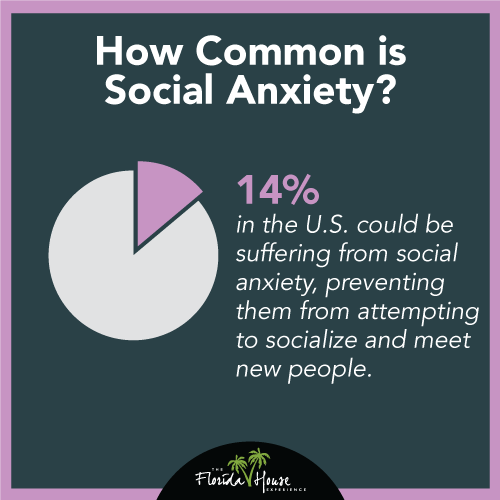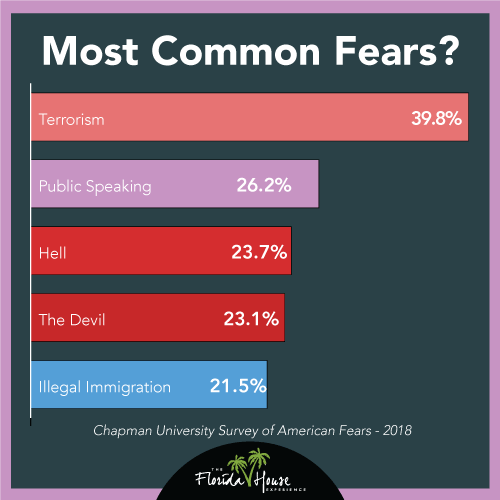
Some of the barriers to seeking mental or behavioral health treatment, including treatment for addiction, are well-known. Despite the increase in social recognition of addiction and mental health disorders as legitimate diseases, a stigma remains, and it prevents some people from getting the help they need. Other people believe they can’t afford to get help.
Another reason people refuse to seek treatment is their unwillingness to let a spouse or other family members find out about a problem, even when it is deeply developed. This was revealed in a 2006 study that explored all the barriers to addiction treatment. The data shows one obstacle that we think may be more common than previously thought: fear of talking about addiction in groups or around others.
Here, we’ll talk about social anxiety as it pertains to treatment for addiction as well as mental health disorders, and why fear of speaking in groups may be keeping people at home when they should be receiving treatment.
What Is Social Anxiety?
 There’s a difference between social angst and social anxiety. Most people claim that they have difficulty with awkwardness in social situations, and only a minority of us are truly as comfortable in public as we’d like to appear. Social anxiety is when this trouble becomes crippling and a reason not to expose oneself to groups at all.
There’s a difference between social angst and social anxiety. Most people claim that they have difficulty with awkwardness in social situations, and only a minority of us are truly as comfortable in public as we’d like to appear. Social anxiety is when this trouble becomes crippling and a reason not to expose oneself to groups at all.
According to the Social Anxiety Institute, the condition is present in people who avoid doing things in public because of their fear and discomfort. The institute reports that rates of social anxiety disorder in the United States could be as high as 14 percent, representing millions of people who won’t attempt to socialize in public or meet new people.
This fear is key because mental and behavioral health treatment necessarily includes a social component, and those who try to recover on their own are rarely successful.
Social Anxiety as a Barrier to Addiction Treatment
The 2006 study mentioned above revealed that there are plenty of addicts who avoid treatment for no other reason than the fact they were afraid to speak about their condition in front of others. This can be harmful, especially when considering another aspect of the issue: Studies show that social anxiety may be a risk factor for substance abuse disorders, meaning that people with social anxiety may be more likely to become addicts.
Why is this? When people feel uncomfortable in social situations, drinking or using drugs may help them feel more at ease. This can become a crutch, and with substances that are already highly addictive, social anxiety can facilitate the transition into addiction more easily.
An element of self-esteem may be involved here. Many drinkers and drug users report first using their substance of choice because it made them feel good. When people feel good, they inherently feel more comfortable in their own skin, and higher self-esteem tends to correlate with a willingness to be social with new groups of people.
Social Anxiety as a Barrier to Mental Health Treatment
There are countless stories similar to one posted in The Atlantic about people whose social anxiety took control of their lives. There’s a paradox at play here: Social anxiety disorder is, in and of itself, a mental health disorder but, at the same time, can be a reason why people don’t seek mental health treatment.
The Social Anxiety Institute notes that people rarely feel the disease when inside of their comfort zone, so typically, those who suffer from social anxiety stay on their own or with a small, comfortable group of friends instead of getting help. This may be a way if “treating” their symptoms, but it is only temporary, not a true solution in any sense.
What Do People Fear?
 Many people with social anxiety don’t have a fear of talking one-on-one with a therapist but become hesitant when group therapy is discussed. Both mental and behavioral health treatments have elements of group activity to them, partially because learning how to socialize in a healthy way is one of the keys to recovery from many of the specific disorders that fall into this category.
Many people with social anxiety don’t have a fear of talking one-on-one with a therapist but become hesitant when group therapy is discussed. Both mental and behavioral health treatments have elements of group activity to them, partially because learning how to socialize in a healthy way is one of the keys to recovery from many of the specific disorders that fall into this category.
Many times, people (addicts especially) get ideas about how group therapy is going to go before they even experience it for themselves. Addiction and feelings of worthlessness naturally go hand-in-hand, so for many addicts, the idea of speaking to a group means shame and judgment.
This is the underlying fear that many people feel, and as we know, it’s to the degree that it keeps them from reaching out for help.
Why Is it So Important to Address This?
It’s crucial to help potential patients past this particular barrier for two reasons:
- It’s important for anyone struggling with addiction or a mental health disorder to get the help they need.
- The social aspect of treatment can actually be the key to recovery.
There’s a reason that 12-step groups and other group therapy programs are effective in maintaining recovery long after inpatient and intensive treatment are over. Finding a group of people who understand your situation and what you’re going through gives you the support you need for lifelong recovery.
Remember that AA, NA and other groups aren’t places for shame. They’re places for support and, most importantly, places where judgment isn’t allowed. Everyone has their own experiences, but at a high level, everyone has the same background as addicts or people suffering from similar disorders.
At FHE Health, we use group meetings because building healthy social skills during recovery is key to making your recovery last. If social anxiety or fear of speaking in groups is keeping you from getting help, contact us. We can help you recover using treatment methods tailored to your unique needs and priorities.






